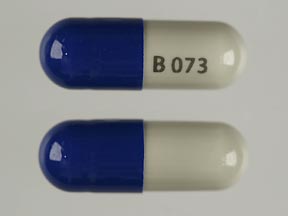
Butalbital-apap-caff-cod Coupons & Savings Card – Discount Prices from $34.50
Generic for: Fioricet/codeine
My prescription
Edit
50-325-40-30MG, Butalbital-apap-caff-cod (60 Capsules)
Select pharmacy

CVS
$44.87
COUPON PRICE
Albertsons
$34.50
COUPON PRICE
Walgreens
$35.84
COUPON PRICE
Walmart
$84.47
COUPON PRICEButalbital-apap-caff-cod savings card
Show this card to your pharmacist
Albertsons
$34.50
BIN
ID
PCN
GRP
011867
LHD92A46D1
HT
LABH001
Powered by
More prescriptions for tension headache
More prescriptions for tension headache
Price history for Fioricet/codeine (brand) & Butalbital-apap-caff-cod (generic)
60 Capsules, 50-325-40-30MG
Average retail price for Fioricet/codeine
Average retail price for Butalbital-apap-caff-cod
Average SaveHealth price for Butalbital-apap-caff-cod
Our price history data is based on aggregated prescription data collected from participating pharmacies in America. Our prescription data updates daily to reflect the latest price changes. If you notice a missing data point, it means there wasn't sufficient data available to generate a monetary value for that date.
We analyzed Butalbital-apap-caff-cod prices for (50-325-40-30MG, 60 Capsules) over the last 12 months. The average retail price was $146.09, while the average price using the SaveHealth discount card was $52.49. That's a savings of approximately 64.07% when using our Butalbital-apap-caff-cod coupon.
Compared to the generic version, Fioricet/codeine had an average price of $2111.70 over the same time period. With the SaveHealth savings card, Butalbital-apap-caff-cod is 97.51% cheaper on average than Fioricet/codeine.
*Retail prices are based on pharmacy claims data, and may not be accurate when we don't have enough claims.
Butalbital-apap-caff-cod dosage forms
Dosage Quantity Price from Per unit 50-325-40-30MG 60 Capsules $44.87 $0.75 50-300-40-30MG 30 Capsules $120.78 $4.03 50-300-40-30MG 100 Capsules $367.91 $3.68 50-325-40-30MG 15 Capsules $19.73 $1.31 50-325-40-30MG 18 Capsules $21.87 $1.22 50-325-40-30MG 20 Capsules $23.30 $1.17 50-325-40-30MG 30 Capsules $30.45 $1.01 50-325-40-30MG 90 Capsules $66.15 $0.73 50-325-40-30MG 100 Capsules $70.58 $0.71
| Dosage | Quantity | Price from | Per unit |
|---|---|---|---|
| 50-325-40-30MG | 60 Capsules | $44.87 | $0.75 |
| 50-300-40-30MG | 30 Capsules | $120.78 | $4.03 |
| 50-300-40-30MG | 100 Capsules | $367.91 | $3.68 |
| 50-325-40-30MG | 15 Capsules | $19.73 | $1.31 |
| 50-325-40-30MG | 18 Capsules | $21.87 | $1.22 |
| 50-325-40-30MG | 20 Capsules | $23.30 | $1.17 |
| 50-325-40-30MG | 30 Capsules | $30.45 | $1.01 |
| 50-325-40-30MG | 90 Capsules | $66.15 | $0.73 |
| 50-325-40-30MG | 100 Capsules | $70.58 | $0.71 |
